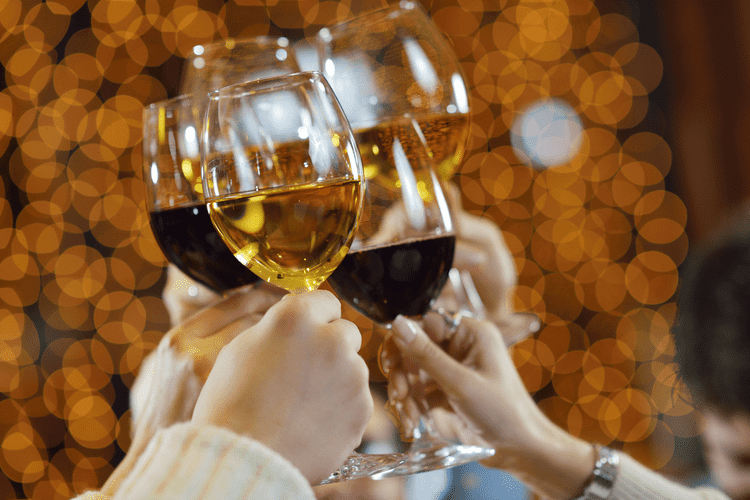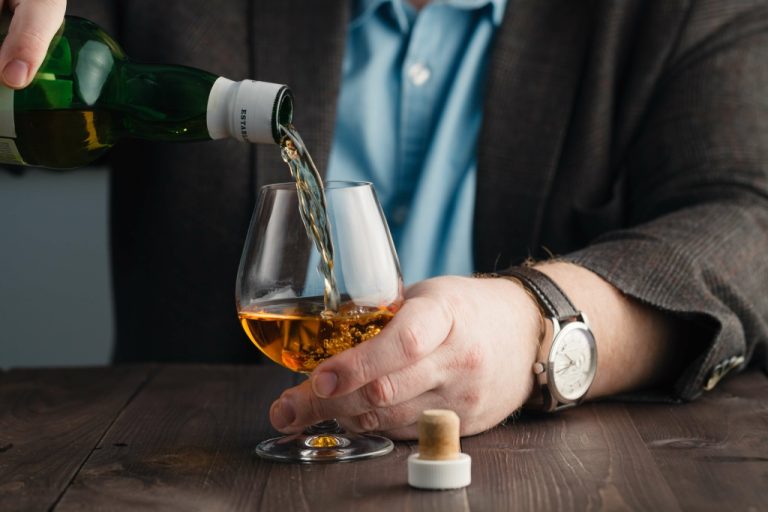You can take this planning time to choose which alternative beverages or activities you’ll want to have in place before you stop drinking. This can be especially helpful for folks with a family history of alcohol abuse. “Over the course of a month, you may notice some short-term benefits like better sleep, a better complexion due to improvements in your skin, feeling more clearheaded and having more energy,” she added.
- A 2016 study of adults who participated in Dry January found that up to six months later, they were drinking on fewer occasions and drinking less when they did imbibe.
- Reduced drinking also improves your gut health, which not only means better digestion and weight loss but also improved mental health and a reduction in chronic health risks.
- Whether it’s a different type of beverage or an activity, it’s helpful to find alternatives to alcohol if you’re trying to cut down.
- There’s no pressure to quit cold turkey, and everything is tailored to your needs and lifestyle.
Lifestyle

The more you observe your behaviors, the easier it becomes to see what needs changing and how you can make that happen. Whether it’s mocktails, alcohol-free beer or wine, or sparkling water with fresh lemon, having a replacement to grab when you feel the urge can satisfy the craving. Also, make sure to keep alcohol out of the house to make it easier on yourself. There are always going to be obstacles to overcome, whether or not you decide on a dry or Dryish January. Think about what might make things difficult for you ahead of time and plan how to work around it. Increasing your sense of self-efficacy can create a domino effect that rolls over into other areas of your life.

Tip #5: Try Sunnyside’s Dry(ish) January Challenge
Extending your dry season past January can help strengthen these new, healthier habits, too, says Dr. Collins. Right after a 3-minute quiz, you get a personalized plan for your goals and current habits. There’s no pressure to quit cold turkey, and everything is tailored to your needs and lifestyle. Coaches are always available to be your accountability buddy, along with a big community of people http://www.glazok.ru/news/30/entry/3619/index.html also trying to get healthier and cheering you on. Maybe there’s a big event happening or you’re too nervous thinking about going cold turkey.
Wellness Topics
If you’ve called the 988 Lifeline, please consider sharing your experience in this survey. In my regular job as mental health reporter, I am examining the rollout of the new mental health crisis hotline in Los Angeles County, and your voice is critical. I know this is sensitive information, and all responses in the survey will be kept anonymous unless you provide permission otherwise. “If you look at that long term and just look at the physiological changes, if people go back to drinking the same amount, those are kind of lost,” he said. One of the practices she encourages is mindful drinking, or closely examining your drinking experience.
- For example, it might calm or distract you; instead, drinking water, having a hot bath, a nice meal, a brisk walk or a phone call with a friend could provide the feeling you’re craving.
- According to Wood, “gray area drinking” is a mild or moderate form of AUD.
- That said, Dry January might not be the right approach for moderating your drinking in the long run if you’re not thinking about the future.
Another 6 million changed their drinking habits, abstaining http://moscow-russia.ru/verzilova-mariya-vladimirovna/ for a portion of the time or decreasing their usual amount. Download apps, like Sunnyside, and become a part of a community of supportive people ready to go through the month with you. Feeling socially supported and a part of a group increases your likelihood to succeed.
And yes, “dry” means abstaining from alcohol for a month—no cheat days. In 2017, that number spiked to more than 5 million, with the enthusiasm for the campaign spilling into the United States. Miriam Dowling, 31, first tried Whole30 to cut back on processed foods. But after finishing her first round on the diet, she discovered that dairy, gluten and other common food culprits didn’t bother her; it was alcohol that she wanted to eliminate. Dowling, a nurse practitioner who lives in Maine, says she was never a heavy drinker, but she’s https://www.edurh.ru/serdtse-na-dvoih.html now almost entirely sober, save for the occasional hard cider and a glass of wine at her wedding. Are you hoping to improve your health, sleep better, or save some extra cash?
It’s a time to evaluate your relationship with drinking and to be more mindful of choices. G) If you’ve noticed that drinking is your way of letting off steam or numbing difficult emotions, think about having a therapist on your side. They can help you maintain your goals, learn new tools for managing stress and emotions, and give you insight and helpful tips to manage your habits and triggers.
- Lauren Silva, a freelance writer in New York City, believes in feeling good in your body and making that experience accessible to everyone across generations.
- They sell everything from zero-alcohol gin, tequila, rum, and whiskey – each one tasting like the real deal.
- There are lots of great reasons to decide to go “dry” in January and give up alcohol.
- The practice of Dry January, a monthlong challenge to take a break from alcohol, has become increasingly popular.
The realization of a potential problem often occurs not during active engagement but when the substance is removed from the equation. This process extends beyond mere abstinence; it involves self-discovery and introspection. By refraining from drinking, you can explore and understand more about yourself, observing what emerges in the absence of this element and gaining insights into your relationship with it. As the confetti settles and the echoes of New Year’s celebrations linger, many find themselves contemplating ways to usher in positive change. The Rethinking Drinking site created by the National Institute on Alcohol Abuse and Alcoholism (NIAAA) is also an excellent resource.
Top Holiday Cocktails You’ll Want to Sip in 2024
For instance, you can opt to halve your alcohol consumption or only drink during non-work nights. The point is to pick a realistic and achievable goal that, at the same time, challenges you to build healthier drinking patterns. Does pushing away the bottle for a month really make a difference in your health?